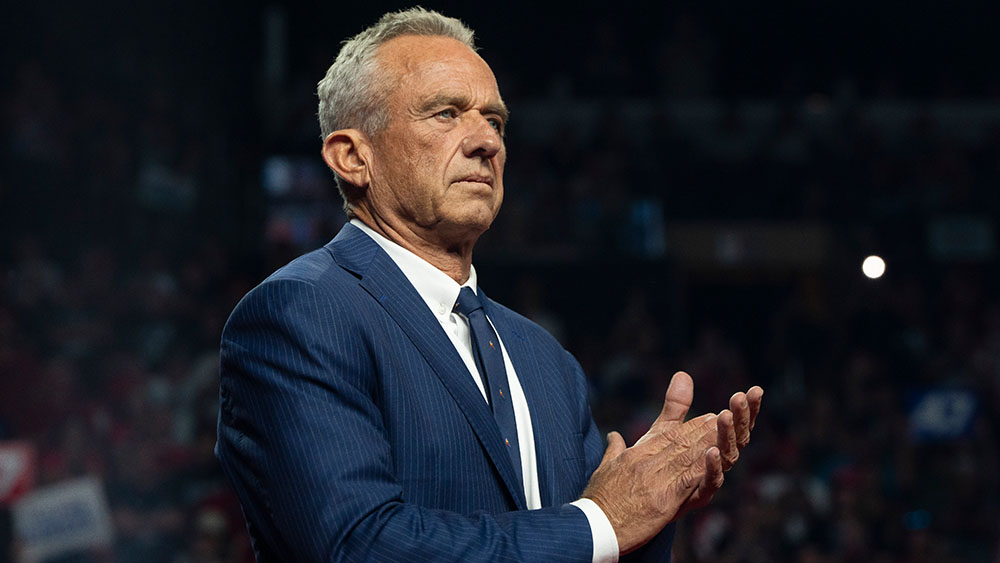 Parler
Parler Gab
Gab
The push for Digital IDs and censorship
In a world increasingly shaped by digital transformation and global crises, the World Economic Forum (WEF) is doubling down on its vision for public-private collaboration to address what it calls “volatile disruptions.” At its annual meeting in Davos this week, the WEF unveiled a white paper titled Resilience Pulse Check: Harnessing Collaboration to Navigate a Volatile World, which advocates for accelerated adoption of digital IDs, censorship of “misinformation,” and private sector funding for UN-led initiatives. While the WEF frames these efforts as essential for achieving the UN’s Sustainable Development Goals (SDGs) and building societal resilience, critics warn that such measures could pave the way for unprecedented surveillance, social credit systems, and erosion of individual freedoms. The WEF’s white paper positions digital IDs and censorship as critical tools for achieving the SDGs, particularly in combating “hate speech,” “misinformation,” and “disinformation.” These terms, often loosely defined, have become flashpoints in debates over free speech and government overreach. The WEF argues that such measures are necessary to protect “information integrity,” which it claims is vital for achieving global development goals. Those who see the signs of an emerging technocracy see this as a thinly veiled attempt to consolidate control over populations. Digital IDs, while touted as a means to streamline services and improve security, could also enable governments and corporations to monitor individuals’ activities in unprecedented detail. Similarly, censorship initiatives aimed at curbing “misinformation” risk stifling dissent and political opposition under the guise of protecting public discourse. The WEF’s vision of resilience and private-public collaboration is all about creating a system where governments and corporations have total control over how people think and behave.WEF’s public – private collaboration blueprint: speeding up the rise of technocracy
The WEF’s white paper emphasizes the need for public-private collaboration to address what it describes as “investment gaps” in developing economies. The Global Investors for Sustainable Development (GISD) Alliance, a UN-led coalition of major financial institutions and corporations, is highlighted as a model for such efforts. The GISD Alliance aims to channel private investment toward SDGs, with the WEF calling for even deeper collaboration between governments and businesses However, the paper also reveals that only 28% of surveyed companies currently engage in public-private partnerships, with regulatory constraints cited as a major barrier. Despite these challenges, the WEF insists that such collaboration is essential for building long-term resilience, particularly in areas like cybersecurity, energy, and technology. Even Donald Trump is acting in ways that align with these goals, having already announced Stargate – a public-private merger ramping up and consolidating the power of AI systems. “Effective public-private collaboration does not necessarily require formal commitment to financing large-scale investments—rather, it can begin with open dialogue,” the white paper states. This approach, the WEF argues, would enable governments and companies to identify key investment areas and work together to address global challenges. The WEF’s latest initiative is part of a broader trend toward global governance, where international organizations and corporations increasingly shape policies that affect billions of people. The UN’s SDGs, adopted in 2015, represent a sweeping agenda to address issues ranging from poverty and inequality to climate change and education. While these goals are widely supported, their implementation has raised concerns about the role of private entities in shaping public policy. The WEF’s emphasis on digital IDs and censorship echoes similar initiatives in countries like China, where social credit systems and strict internet controls are used to monitor and influence citizen behavior. Critics argue that the WEF’s vision could lead to a similar erosion of privacy and freedom in other parts of the world. Sources include: ReclaimtheNet.org Reports.weforum.org [PDF] ReclaimtheNet.org NaturalNews.comItaly follows Trump’s lead in WITHDRAWING from the globalist World Health Organization
By Ramon Tomey // Share
The hypocrisy of Davos: Elites push for CARBON TAXES on the masses while on private jets
By Ramon Tomey // Share
Breaking: Claims that childhood vaccines ‘saved millions of lives’ based on flawed models
By News Editors // Share
Governments continue to obscure COVID-19 vaccine data amid rising concerns over excess deaths
By patricklewis // Share
Tech giant Microsoft backs EXTINCTION with its support of carbon capture programs
By ramontomeydw // Share
Germany to resume arms exports to Israel despite repeated ceasefire violations
By isabelle // Share










